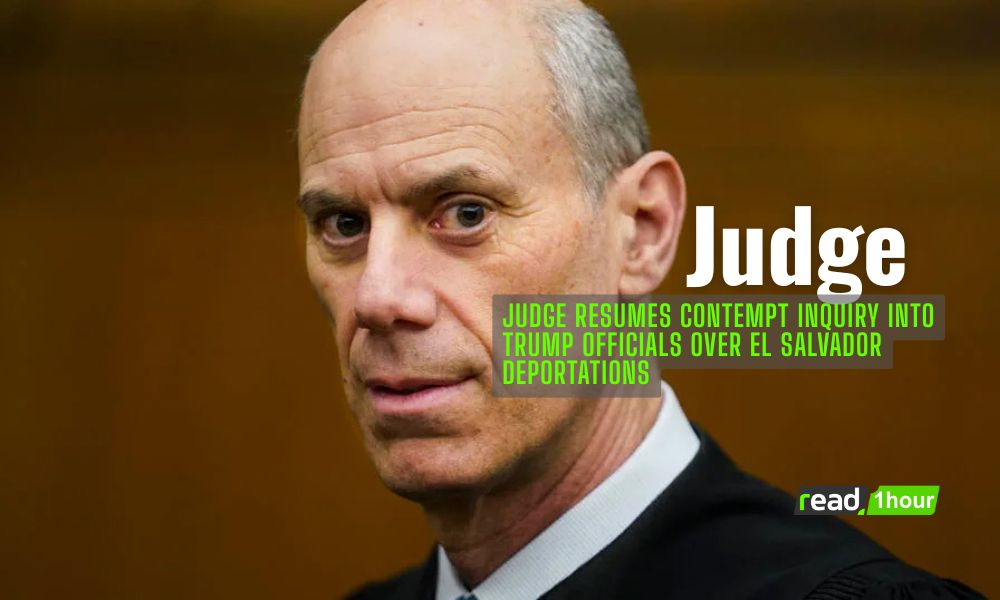Judge Resumes Contempt Inquiry Into Trump Officials Over El Salvador Deportations
Federal judge reopens contempt inquiry into Trump officials over unlawful El Salvador deportations, raising questions about accountability and immigra
A federal judge has announced that the court will resume a long-stalled contempt inquiry into former Trump administration officials for allegedly violating court orders related to deportations to El Salvador. The decision has reignited national debate over immigration enforcement, government accountability, and the legal limits of executive power.

The inquiry stems from a series of deportations carried out between 2017 and 2019, when several asylum seekers were removed to El Salvador despite an active federal order prohibiting such actions. Immigrant rights groups claimed that Trump administration officials knowingly ignored legal restrictions, putting vulnerable individuals at risk of violence and persecution.
Judge Marcia Holland, presiding over the case, stated that new evidence and testimony justify reopening the investigation. According to the judge, government emails and internal communications may show deliberate disregard for the court’s instructions. “Federal agencies are not exempt from judicial oversight,” she wrote. “Compliance with court orders is not optional, regardless of political directives.”
Former Homeland Security and ICE officials who oversaw the deportation decisions may now face legal consequences, including possible civil sanctions or criminal referrals. Legal experts say the inquiry could define how far executive branch officials may go when enforcing immigration policy.
Advocates argue that the deportations placed families, children, and asylum seekers in grave danger. Human rights organizations document widespread violence, gang threats, and political instability in El Salvador during the period in question. Several deported individuals later reported extortion attempts, assaults, and threats to their lives.
The Trump administration had defended its actions at the time, insisting that deportations were necessary to protect national security and uphold immigration law. Critics countered that the administration repeatedly clashed with the courts and pushed aggressive policies that violated established legal procedures.
This renewed inquiry may also affect ongoing political discussions, especially as immigration remains one of the most divisive issues in the United States. Lawmakers from both parties responded quickly to the judge’s announcement. Democrats praised the decision as an overdue step toward accountability, while some Republicans dismissed the inquiry as politically motivated.
Immigration attorneys say the inquiry underscores the importance of judicial oversight in preventing abuses of authority. “The court’s role is to ensure that no administration—regardless of party—can ignore the law,” said legal analyst Andrea Gomez.
Meanwhile, families affected by the deportations say they hope the inquiry leads to justice and greater transparency. Several legal organizations have filed motions seeking compensation or relief for individuals harmed by the prohibited deportations.
As the inquiry resumes, federal agencies are preparing to provide additional documents and testimony. The proceedings are expected to continue over the coming months and could shape how future administrations implement immigration policies.
For now, the judge’s decision signals a renewed focus on accountability and the rule of law, marking another chapter in the long-running debate over how the U.S. conducts deportations and protects the rights of asylum seekers.
